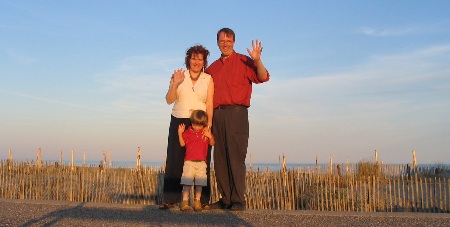In Aniane, as elsewhere in France, there is a problem with dog owners letting their dogs shit where they like — streets, sidewalks, alleys — and then just leaving said shit there for others to avoid or, if unlucky, drive over or step in.
There is a campaign here in Aniane, however, to change dog owner behaviour. From the look of the streets it is not a terrifically successful campaign, but perhaps we’ve caught it early.
School children are on the front lines of this campaign; here’s a random selection of their poster are against crottes:






Here’s a photo I took yesterday from a plateau overlooking Aniane. The tower to the left is the “Tour” in “rue de la Tour,” which is our street. Our house is roughly in the middle of the picture.

- Bicycle tires in France have different valves, complex yet ingenious little things that screw out (to inflate) and back in (to seal). Perhaps this style is more widespread than I know, but this is my first encounter.
- Car radios are smart. There’s a switch you can flip that will keep the same radio station (or network) tuned, even if you’re traveling a long distance and the actual frequency changes several times.
- Escalators are on the other side. Which is to say the “up” is on the left, not the right as it is in Canada. And vice versa.
- Milk for tea is served hot. And it also appears to be something of a novelty to order milk with tea at all, as when I order, as instructed by my phrase book, thé au lait I’m often greeted with a quizical (in French) “you mean you’d like some tea, with a little pitcher of milk on the side?”
- Aluminum is still in vogue. I couldn’t figure out with the space-age light material that various spoons were made of until Catherine told me it was aluminum. There are also three standard spoon sizes, with an intermediate size betwen our “tea” and “table” spoons.
- Credit cards have PIN numbers. Whenever we pay by credit card there is confusion because we don’t have a smart chip in our cards, and need to actually sign the slip rather than typing in a PIN number. I assume this means the French system is an amalgam of our “Interac” and credit card systems, but I’m not sure. Oddly, when paying road tolls on the autoroutes I’ve been able to just slide my card in the slot, and it comes back to me immediately and the gate opens with no “we’re checking to make sure you have enough money” wait. I wonder if they’ve just decided to eat any charges that might arise in return for smoother flowing traffic at the toll plazas.
- Milk is sold in “last forever” sterilized packages. Try as we might we’ve not been able to find milk in the “fresh” form that we’re used to at home. Grocery stores have entire aisles where milk is sold in Tetrapak or similar containers, sterilized and sealed and with no need of refrigeration until opened.
- Everyone says “bonjour.” Really. Well, perhaps not in the big cities, but here in Aniane everyone we meet, from child to adult, plasterer to businessperson, strange and familiar, says “bonjour” or “bon soir” to us (and to each other) on the street. It’s very endearing.
- The country has an excellent tagline. In the annals of three-word phrases, you gotta say that Liberte Egalite Fraternite is a pretty good one. And it appears on every public building, school and piece of official documentation we’ve seen. Canada needs branding like this.

Here’s a work in progress, a photo-collage of all of the street signs in Aniane:

Oliver and I were sitting on the steps of the Perpignan Public Library on Tuesday afternoon drinking our orange juice when a young man with a guitar wandered along and sat down about 10 feet away and started quietly strumming. Oliver noticed that he was drinking orange juice too.
A few minutes later another man, a little older and drinking a bottle of beer, came alone and, out of nowhere, starting singing the most beautiful music at the top of his lungs.
Words cannot do justice to how good a singer he was. Neither can this low-grade recording I made with my phone, although it will give you a little idea. A motorcycle sped down the street just after I started recording; towards the end Oliver starting singing himself, and asked me if he could dance.
This Sunday was May Day here, the day the French simultaneously celebrate workers (like our Labour Day) and spring (like our Victoria Day).
We knew something was afoot when we picked up our baguette at on Sunday morning and the boulanger handed us a small bouquet of flowers and wished us “Happy First of May.”
The big May Day event here in Aniane was the Au Bonheur des Jardins, held on the edge of town in a large walled compound that looked like it had been a armory in an earlier life.
We figured, from the publicity, that the Au Bonheur des Jardins was a festival of flowers and plants. What couldn’t be effectively be communicated on the posters, however, was that it was a died in the wool “Birkenstocks and apple cider” hippie festival of flowers and plants.
Some things, it seems, transcend cultural divides, and “back to the landism” appears to be one of them, for we might just as well have been at any Canadian gathering of organic farmers, folk musicians and hackey sack devotees.
All the telltale signs were in place: the healthy brownies for sale that tasted like chocolate pressed wood pulp, the man selling energy detecting handcrafted wooden pendulums, tables covered with pamphlets selling the international solidarity movement, recycled stuffed toys in the children’s “fishing pond” game, the drummers drumming their handmade drums, and the shiatsu stand in the corner.
Of course, this being France, there were also mimes on stilts, handmade goat cheese, and flagons of wine available to go with the brownies.
Although I’ve flirted with the edges of hippie culture in Canada — when Catherine met me I had a full beard and hair down to my shoulders in a pony tail, after all — I was always a tourist, eating the carob burgers by day and running out to Mcdonalds by cover of night. In the end I found conforming to the rules of the Birkenstock crowd as confining as conforming to the rules of the suit and tie crowd, and went my own way.
But I found Au Bonheur des Jardins oddly alluring.
Somehow being amidst something so disturbingly familiar but in French (and thus completely without chance of recruitment) made for a very pleasant afternoon. I sat back and drank my mint tea (leaves left in, of course) and ate my brownie, and just watched it all unfold. I even screwed up my courage and bought some artisanal cheese (very good, from the Champagne region) and some handmade books (cookbooks about basil, eggs and olive oil).
Catherine, frighteningly at home in any situation, simply dove in. She and Oliver made handmade paper, fished for recycled stuffed toys, and watched the mimes up close. She bought some myrtle juice (we’re still not sure what a myrtle is) and some more cheese and some weird substance from which she can purportedly make tea.
Monday morning, life returned to normal.
On Tuesday night we got caught, again, in the “we’re going to have to eat at a cafeteria” bind.
We’d driven down to Perpignan for the day, attracted by the allure of the promised “somewhat France, somewhat Catalonia” colour of the city. Catherine spent the day wandering around by herself, visiting art galleries and going behind the scenes at a weavers coop. Oliver and I found a playground, visited the library, went shopping for shoes, took in all of the toy stories within the walls of the old city, had a fresh squeezed orange, kiwi, strawberry juice, and found a FNAC outlet with glass bridges that Oliver found very compelling.
At the end of the day, though, I had to find a quiet place to settle down for a conference call with the folks back home at Yankee. The truck was underground, with no mobile phone reception, so that was out. We considered going to dinner and having me just duck outside, but we were still to early to eat.
In the end we decided to head towards home, and find a place along the way to stop when 8:00 p.m. (aka 2:00 p.m. Eastern) arrived. As it turns out, this place happened to be the parking lot of a giant Carefour grocery store. And when the conference call was over, and I’d reunited with Catherine and Oliver (who’d been exploring the cheese, televisions and running shoes of the store), we realized that it was too late to head back into the city (too late for us and too late for the city). We had no choice but to dine at the cafeteria we had so accidentally parked immediately in front of.
We decided that I would take Oliver and sit while Catherine made her rounds and picked up her dinner, then we’d switch.
Catherine made a good go of navigating the system, which was a little different than what we’d experienced earlier in the week in that the meat course had to be ordered in advance and picked up elsewhere. She made the mistake, however, of picking up a small can of apple juice for Oliver from a special fridge devoted to the servicing of the menu pour enfants.
It turns out that this can of apple juice was “not sold separately” and by the time we knew what hit us (I was involved as a French-English go between by this point) we’d been forced to order the entire menu pour enfants, which consisted of a heaping portion of french fries, a piece of chicken that was large enough to be an entire small bird, a salad plate and dessert.
The problem was that Oliver, catatonic from a day in the Perpignan sunshine, wasn’t hungry at all. Not even the prospect of french fries with mayonnaise (usually a sure winner) could tempt him. He didn’t even want the apple juice.
So I polished off my “assiette des legumes” (I had learned from our earlier experience, and there were no squid parts on my plate) and Catherine finished off her boiled pork (Catherine hadn’t learned from our earlier experience). Catherine, feeling guilty, polished off Oliver’s salad. We smuggled the apple juice out to the truck. And Oliver’s menu got left on the plate.
Of course if my grandmother had been in attendance the entire meal would have gone into a napkin and into her purse, but modern day fears of botulism combined with the realization that Oliver would be even less likely to eat a giant cold piece of chicken later on prevented us from doing likewise.
Out on the highway, we found ourselves alone with the trucks heading up into France from Spain. With 130 km/h of highway largely to ourselves, we made short work of the journey home, and were in bed by 11:00 p.m.
We have vowed that, come hell or high water, there are no more cafeterias in our future.
We came here to Aniane at exactly the right time, just as winter was on its way out. Although the weather was certainly an improvement over Charlottetown’s “extended late winter,” the nights here were still cool, and the chill never really left the house during the day.
Over our three weeks spring has arrived in spades: the temperature has risen by 5 to 10 degrees, leaves on the trees and vines have sprouted, and everything and everyone seems to have an extra spring in the step.
We’ve been here long enough that the boulanger knows our daily order, the man at the épicerie knows Oliver likes Kinder Surprise Eggs, and the postmaster knows to prepare the international stamps for Oliver when he sees him coming with postcards in hand. Catherine got her hair cut and styled yesterday (entirely in French; a sheer force of will, a testament to her stubborn courage); the man who served her coffee at the salon was the same man we found, later in the day, behind the counter at the hardware store. (Her hair looks great, by the way).
I have begun to remember not to say bonjour after dark, learned that you buy artisanal chocolate by the plaquette and which is which in the fraise vs. framboises confusion. We’ve figured out which bac to put our compost, our recycling and our garbage in, and we know when it’s too windy to put our clothes out to dry. And that we need to move the car on Wednesday nights because Thursday is market day. I’ve even begun to form my own opinion about the oui vs. non on the EU constitution vote coming up later in the month (I’m leaning oui).
While I haven’t learned quite how the French television tuning system works (it seems to involve the letter “P” in a big way; I’m just not sure how), I have figured out that there is a movie on almost every channel every night at 8:55 p.m.
French and English have started to blur too. I’ll read part of a book, put it down, and then not remember which language it was in. I’ve slowly switched from the “simultaneous translation” method of living in French to the “taking French on its own terms” method.
Which is not to say that I’m any good at understanding, speaking, or reading French. I get the masculine and feminine mixed up. I express most everything using primitive building blocks (“do you have any things of chocolate that also have the name Oliver embossed on the top like these chocolates that are round that contain alcohol?”). But I’m not half as afraid as I was when we first arrived, and I’ve ceased to be too ashamed of my poor French (mostly) to venture forth into new territory (mostly).
Twenty-one days isn’t enough time to really understand anything about a place — we’ve been on Prince Edward Island for twelve years and we still don’t understand. Most of what I relate above is more about comfort and familiarity than about realizing French life, culture and history.
But I’ve a strong belief that culture is found not in the monuments and the museums but in the substance of everyday life: road signs, roof tiles, park benches, the little twist of the bag that keeps the croissants from falling out, saying bonjour to everyone you meet as you walk.
Living in the midst of what to us is a strange yet vaguely familiar land, and achieving some level of comfort and familiarity, has allowed us, if not to understand France, at least to realize that there is something here to be understood: that the wine and the land and the architecture and the parks and the croissant bag twist and the church and the war and the cheese and the strange opening hours are all part of a complex, interdependent system. This is not something unique to France, of course; it’s just that this system in this country has an integrity, a maturity, and tremendous sensual appeal that makes it an excellent selling tool for opening the mind to consider other.
If all Oliver remembers from the trip he took to France when he was four is a vague memory of that notion, then I think we will have done our job as parents well.
Reasoning that we should explore more of the Hérault valley before our time here is over next week, our adventure yesterday afternoon took us northwest from Aniane through St. Martin de Londres to the Grotte des Demoisselles, the geology bug not quite out of our system.
The Grotte des Demoisselles is a stunning geological formation.
A short funicular railway runs up a tunnel that has been blasted through the side of the mountain; at the top you begin your guided tour of the many interconnected caves. While it’s not “spelunking” — there are stairways, guardrails and everything is very well lit — it certainly is underground, and it was quite a journey up, up, up and down, down, down the various steep inclines, tunnels, and platforms.
The guided tour, entirely in French and thus mostly beyond our grasp, seemed to concern the identification of various animal, fairies, and other shapes that had been accidentally shaped by nature out of rock; we didn’t miss much, as the scenery spoke for itself:


Like the Grand Canyon, photos don’t really do the place justice.
Despite the jaw-dropping geology of the place, the highlight for Oliver was a stuffed bear set up with arms raised in mid-growl placed halfway down the funicular ride back to reality: he has been talking about it non-stop for the past 24 hours, and insisted on buying a postcard of it to send to his friends Bailey and Riley.
Once out in the sunlight again, we drove a short distance north to the riverside village of Laroque for a late afternoon snack of tea (me), Perrier (Catherine) and pistachio ice cream (Oliver). Oliver, who doesn’t eat a lot of ice cream at home, has had a least a scoop or two every day we’ve been in France. We don’t know how he’s going to react to the relative nutritional puritanism of Canada.
Reasoning that we wouldn’t make it back south before a reasonable time for supper, and not wanting to tempt the cafeteria fates of the previous night, we decided to drive a little farther north to the town of Ganges for a meal.
Ganges has a pleasant children’s playground right inside its main square; I ran off to a magazine store for a minute while Catherine and Oliver explored it. When I returned I found them besieged by a gaggle of young French children very interested in who they were and why we had descended on their town seemingly out of nowhere. I was able to translate a little, and I managed to clear up any confusion about whether we were American or Canadian: although they had never heard of Canada, they were quite concerned that our proximity to the les États-unis meant that we were at war with Iraq. I assured them that this was not the case.
For supper we had various couscous-based dishes on the terrace of a restaurant beside Ganges’ indoor market. As our waitress spoke no English whatsoever, our dinner was something of an adventure, involving random decision about like things like whether agneau was goat, lamb or racoon’s eyeballs (it was lamb). Oliver ate bowl after bowl of couscous with chicken and vegetables; Catherine had couscous with the aforementioned agneau, and I had a tasty bowl of chicken, potato, tomato and eggplant. For dessert Oliver had black currant flavoured ice cream, Catherine had something that in French sounded like a “oriental pastry” and turned out to be a spring roll filled with honey and almonds, and I decided I needed to experience a “cheese course” (which was interesting: the cheese was excellent, but I’m unsure of the whole “eating cheese to finish a meal” thing).
By this time it was almost 10:00 p.m. — supper takes much longer here than we’re used to, which is not unpleasant — and we piled into the truck for the drive south, which was not without adventure of its own.
On our way up through St. Martin de Londres we had seen various barricades at the ready for what we assumed would by a May Day celebration. We were right. Except that things got underway a day early, and the entire town was taken up with a riotous April 30 celebration. So much so that the traffic on the highway through the village was subject to a déviation obligatoire.
Now in a normal village, such a déviation would not be a major problem. However as St. Martin de Londres is built into the side of a hill, there is really only one route through town to speak of, so to deviate requires travel through a complex maze of back alleys with little clearance. We were doing pretty well, we thought, until we came down a hill with a 15% grade at the bottom of which was a 15 feet metal gate surrounded by revellers cheering on an unseen game of something behind.
As the alley was only one truck wide I had no choice but to throw it into reverse and attempt a Bourne Identity-type drive backwards up the hill.
I consider myself a pretty good master of the manual transmission, but moving from a standing start up a steep grade in reverse in an unfamiliar vehicle is not something, it seems, I’m very good at: the Peugeot made all sorts of complaining noises and smells, and without a nick-of-time application of the brakes we would have ripped off the side door in a very, very low speed collision with a stone wall.
Fortunately, just as I was ready to give up, leave the truck there, and walk back to Aniane, an angel arrived in the form of a somewhat endrunkened man who knocked on the side window. I rolled it down and he told me that if I went down into the sea of hooligans, I would be able to passez à droit into a seemingly invisible alley running off to the right.
So we headed down, the hooligan sea parted, and with a couple of inches on either side we made it around the corner and onwards into the balance of the deviation, which was level, wide, and uneventful.
We arrived back in the parking lot in Aniane about 11:00 p.m. Oliver was in that post-tired state that comes after a day of adventure, ice cream, cave climbing, bear encounters and alley driving; that kind of state where when I pointed out that boulangerie and “bump your knee” sort of rhyme he broke out into ceaseless giggles.
We made our way to the house, climbed the stairs to bed, and didn’t wake up until the next morning.
Some days are just, well, interesting.
Our day started around 9:00 a.m. Oliver and I headed out on our morning run to the boulangerie, ordered une baguette, deux pains aux chocolats and a nice green pepper tart for Catherine. Returning home, we had a pleasant breakfast, enjoying the newfound warmth of recent days (spring has really arrived here in earnest; when we started our visit you could still feel the chill of winter in the mornings).
I got some work done after breakfast, and Catherine and Oliver headed to the grocery store and the post office. Around noon we had a nice lunch of sandwiches with mushrooms, goat cheese, tomatoes and olives. A little more work after lunch, and then I shut up shop and we headed out for an adventure.
We had resisted going to the sea so far, even though we’re only about 45 minutes from the Mediterranean, because we wanted to wait until it was warm enough to walk on the beach. Today certainly seemed to qualify, so we set that as our goal.
We had a couple of stops planned along the way: I wanted to stop in Clermont-l’Hérault to upload some email and grab some files, and I thought we might stop in a little “model factory village” nearby called Villeneuvette. We would then head quickly cross-country to Sète and the ocean.
We parked near the now-familiar Mcdonalds in Clermont-l’Hérault and Catherine and Oliver took advantage of the playland therein to occupy themselves while I got unwired. I found an exciting new place to position myself to receive the same old WiFi signal, on a cement ping-pong table a little up the street; far more comfortable and somewhat less conspicuous. I was over and done in about 20 minutes, much to Catherine’s surprise.
 Villeneuvette proved to be a very pleasant stop. A small walled community once originally built around a now-dormant flag factory — Manufacture Royale — the village is completely untouched by time (i.e. if this were PEI there would be a large “FlagLand” shop out front; there wasn’t). Oliver had a pleasant time playing with a small Italian-speaking boy on the teeter-totter while Catherine roamed the alleys and I enjoyed the sun.
Villeneuvette proved to be a very pleasant stop. A small walled community once originally built around a now-dormant flag factory — Manufacture Royale — the village is completely untouched by time (i.e. if this were PEI there would be a large “FlagLand” shop out front; there wasn’t). Oliver had a pleasant time playing with a small Italian-speaking boy on the teeter-totter while Catherine roamed the alleys and I enjoyed the sun.
Back out on the highway, our plan to “head quickly cross-country to Sète” went off the rails in short order as we realized that there was a rather large mountain range between us and there, and the road that looked straight on the map was, in fact, quite hilly and full of twists and turns.
Nonetheless, the scenery was fantastic, and we were glad to be off the autoroutes for a while, so we forged on up and around and around and around.
About 4km along the road we came to a sign for a “Mine du Pioch Farrus.” We weren’t sure what it was about (does “mine” mean the same in English as French, we wondered), but it looked intriguing, so we turned in and drove over a couple of hills and around a couple of bends until we arrived at a small parking lot in front of a small building built into a hill.
 Inside we found a man of perhaps 50 who bore a striking resemblance to Santa. If Santa worked part time in a mine, wore a hard hat, and smoked. Using a combination of his poor English and my poor French we determined that we had arrived by chance at the site of the oldest mine in France, a copper mine founded in pre-history and later used by the Romans and then even more recently. We could head into the mine on a tour that was to leave shortly; there was a French family of four already dressed in hardhats and waiting to go.
Inside we found a man of perhaps 50 who bore a striking resemblance to Santa. If Santa worked part time in a mine, wore a hard hat, and smoked. Using a combination of his poor English and my poor French we determined that we had arrived by chance at the site of the oldest mine in France, a copper mine founded in pre-history and later used by the Romans and then even more recently. We could head into the mine on a tour that was to leave shortly; there was a French family of four already dressed in hardhats and waiting to go.
Of course we went.
Oliver got a hard hat sized down for him, and he and Catherine were given blankets to wrap around them to keep out the chill down below.
It turns out that we didn’t, in fact, need to go down at all: we simply walked, horizontally, right into the mine; after 3 minutes walk we were 50 metres below the surface, having walked into the side of the hill.
Our bearded guide did his best to provide the highlights of the tour to us in English, bless his soul, and we learned quite a bit about mining for copper. He was very good with the kids — showed them where to look, and gave them little bits of rock to hold. We saw veins of copper, quartz, and dolomite, explored the various tunnels used prehistorically, by the Romans, and more recently, and saw evidence of the various methods used by each to mine, from “banging really hard with harder rocks” through dynamite. Could there be a better serendipitous tour for the son and grandson of a geologist?
After a thorough tour of the mine, we headed back out into the sun, said goodbye to our host and fellow tourists, and turned back onto the hilly road south.
We realized soon that we were really going to go quite far up and over aforementioned mountain; indeed when we reach the top we had a view for what must have been a hundred miles:

Ten minutes into this leg of the trip, Catherine developed a headache of unknown cause. And she’d forgotten to back the Tylenol. Thank goodness a large part of my French language education consisted of various dialogues that involved being “mal à la téte” as I put this to use when I walked into the pharmacy in Roujan and explained, in attempted French, that “my wife has a sickness in her head; do you have anything that might help?” and received in answer a quantity of Tylenol under its European name that sounds something like “Parametrocal.”
 While I was at it, I stopped by the boulangerie and the épicerie and bought us a little snack to tide us over. I then rejoined Catherine and Oliver, waiting at Roujan’s excellent playground, and we munched before heading south again.
While I was at it, I stopped by the boulangerie and the épicerie and bought us a little snack to tide us over. I then rejoined Catherine and Oliver, waiting at Roujan’s excellent playground, and we munched before heading south again.
From Roujan the road was much easier going; indeed it was almost straight south to Pézenas, and the entire route was lined with towering trees on either side.
From Pézenas we did a complicated zigzag dance of highways and interchanges that eventually got us to the sea at Marseillan, a small beach town between Agde and Sète. The town itself was similar to Old Orchard Beach, complete with ice cream stands and innumerable open air restaurants. We headed straight for the water, though, and while Catherine took a nap in the truck, Oliver and I played on the beach and got ourselves covered in sand.

We realized at this point that the sun was starting to go down, and we’d better find a place to eat dinner. We piled back into the truck and headed into Sète.
Somehow we ended up approaching downtown Sète in such a manner that rather than being able to find a place to park and set out to eat, we were forced suddenly to turn left and drive up the large mountain that is right in the middle of the town. This is a large mountain, right on the sea, and by the time we reached the top — there were no opportunities to turn back or divert — the view was breathtaking. We stopped to take pictures, and then headed on over the mountain and approached the town from the other side, ending up right in the middle of the Friday night craziness.

In an attempt to approach things calmly (we were getting ever more hungry by this point), we decide to park and walk. Except that our attempts to park (alas proving the lessons of the guidebooks true for once) proved futile, and we came very close to accidentally climbing the mountain again.
We decided it was best to head into suburban Sète to see what we could scrounge up for dinner.
Once of the most perplexing things about day to day French life is how early everything closes. Giant super grocery stores that sell everything from salmon to TV sets close up shop at 7:30 or 8:00 p.m. Restaurants close by 10:00 p.m. in most cases. It is not a country for the night owl. And by this time it was nearing 9:30 p.m. and Oliver realized we’d forgotten to have dinner and decided to remind us of this somewhat strongly.
Fortunately for all, around a bend and we found a cafeteria that was open until 10:00 p.m. The cafeteria, long since disappeared from all but institutional settings in Canada, is alive and well here in France, and this was but one example. All of the usual cafeteria things are present — trays for your food, a cold station, a hot station, and so on. In France, of course, there is also a wine station and a cheese station. And very handy little wheeled carts that families can use to hold multiple trays.

Arriving at 9:30 p.m. at a cafeteria that closes in 30 minutes and expecting tasty fresh-cooked food was something of a pipe dream. Add to that our inability to understand the subtlety of statements like “we are all out of that thing that it says we have on the menu but we do instead have this other thing here” and you can understand how Catherine ended up with what I think was boiled duck (do they boil ducks?) and I ended up with an oddly tasty dish made up of potatoes, carrots, and what appeared to be squid legs (do squids have legs? why do all my mysterious adventures involve squids?), all covered in a cheesy red sauce. Catherine got a small carafe of wine for 1 euro, Oliver some orange juice in a special kids squirt bottle, and a had my first Pepsi in ages, reasoning that I needed strength to get us home. Oliver and I split a piece of chocolate cake to finish it all off.
All things considered, it was food and we loved it.
Looking at the map after dinner, we realized that there are no roads from suburban Sète to Aniane. Or rather what roads there are look, on the map, dangerously like they might involve serious hill climbing. Something we weren’t prepared for at this point.
So we headed in a roundabout way into Montpellier, and then back out the N109 to Gignac and up to Aniane. We got home on the stroke of 11:00 pm.
It was about as interesting a day as you could ask for.
 I am
I am